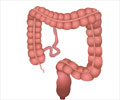Glossary
Celiac disease: A digestive disorder where the patient develops an immune response after eating gluten-based food.Crohn's disease: Chronic inflammation of the gastrointestinal tract, most commonly the bowel. Crohn's disease increases risk for colon cancer.
Diverticulosis: A condition marked by small sacs or pouches (diverticula) in the walls of an organ such as the stomach or colon. These sacs can become inflamed and cause a condition called diverticulitis, which may be a risk factor for certain types of cancer.
Gastrectomy: Surgery to remove part of all of the stomach.
Gastroparesis: A form of nerve damage that affects the stomach. Food is not digested properly and does not move through the stomach in a normal way, resulting in vomiting, nausea, or bloating and interfering with diabetes management.
Ileostomy: Surgically created opening of the ileum (small bowel) on to the abdominal wall to divert evacuation of bowel contents.
Irritable Bowel Syndrome (IBS): A condition in which there is a tendency to overactivity of the bowel emptying activity, accompanied by abdominal pain and diarrhea; the cause of the condition is unknown but psychological and allergic factors are generally believed to play a role.
Osteomalacia: Another name given to rickets when it occurs in adults.
Osteoporosis: A disease in which bones become thin, weak and are easily fractured.
Pancreatitis: Acute inflammation of the pancreas, often causing destruction of pancreatic and other abdominal tissues because of the escape of pancreatic enzymes.
Scleroderma (or) Systemic sclerosis: A disease of the skin and connective tissue that can cause hair loss over the affected areas.






